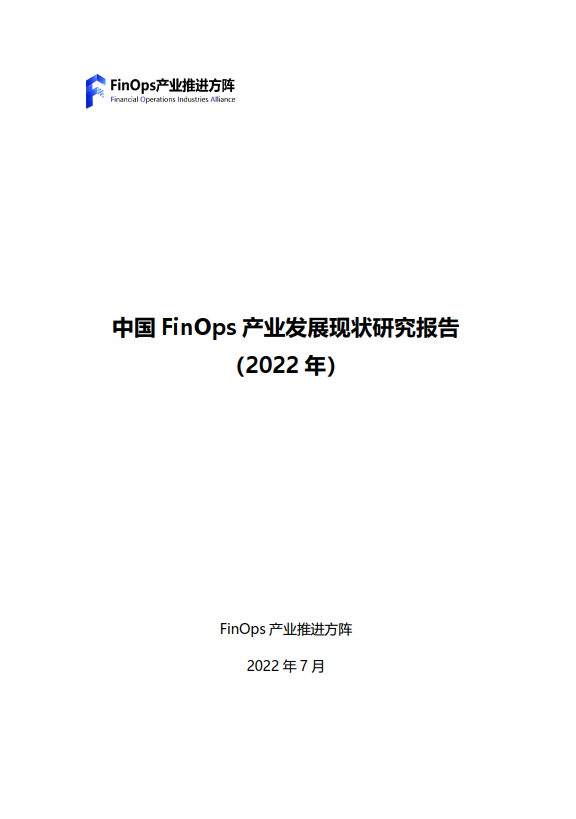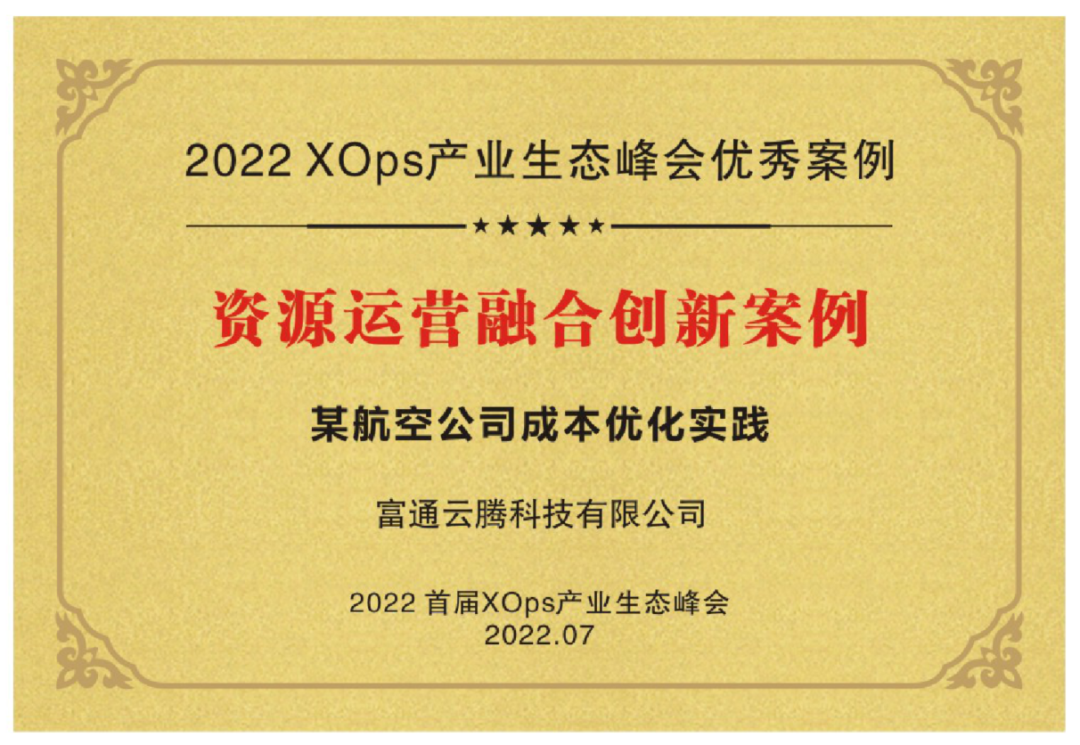Recently, at the XOps Industry Ecosystem Summit · FinOps Resource Operation and Management Forum, the "China FinOps Industry Development Status Research Report (2022)", led by the China Academy of Information and Communications Technology and co-authored by well-known institutions and companies in the industry such as Futong Cloud, was officially released. The report focuses on the current status and future development trends of FinOps in China, analyzing the current state of FinOps development in the country, the problems and challenges faced by enterprises in the process of FinOps, and the application of FinOps tools and technologies.
As a member of the writing team, Futong Cloud actively participated in the preliminary market research and contributed effective suggestions during the report discussion, providing technical expertise to the writing process.

With the deepening of digital transformation, corporate IT expenditures continue to increase and the scale of IT infrastructure resources keeps expanding. The operation and management of IT resources need to ensure the supply and elasticity of resources while maximizing operational efficiency. The focus of IT resource operation and management is expanding towards refined management, cost optimization, and benefit management.
The report shows that over 70% of companies have a certain level of detailed management requirements for IT resources; larger companies have stricter requirements for IT resource management and are increasingly moving towards refined management of IT resources. The top three challenges that companies currently face in the process of refined operation of IT resources are the lack of a "business-application-platform-resource" penetrate administrative view, the absence of cost awareness, and the lack of support from relevant systems and tools.
FinOps focuses on the two major themes of "finance" and "operations" in IT resource management. It starts from the internal management needs of enterprises, bridges the perspective differences between IT, finance, and business, and promotes efficient management of enterprise IT resources to achieve cost reduction and efficiency enhancement. The report points out that about 60% of companies plan to adopt FinOps products or services for the implementation of FinOps. Resource usage analysis, resource optimization, intelligent forecasting, and resource usage monitoring are the top four capabilities that enterprises hope FinOps products will possess.
In the realm of cloud cost optimization and resource efficiency enhancement, Futong Cloud has established a unique cost pricing model that, combined with metering monitoring and billing models, achieves flexible and comprehensive cloud resource billing, laying a solid foundation for cost analysis and optimization. Additionally, by employing AI technologies such as deep learning algorithms, ARIMA models, and multi-objective optimization models, high-fidelity trend predictions and a variety of precise and practical decision-support recommendations are realized, significantly improving the effectiveness of cost optimization and the business support capability of cloud resources.
Furthermore, by employing data visualization methods, multi-dimensional cost analysis is provided, including analyzing the costs and expenses, usage efficiency, and trends of cloud resources from three dimensions: business, organization, and cloud environment. This offers strong support for cost reduction and efficiency enhancement.
From the era of comprehensive cloud adoption to the era of efficient cloud management, Futong Cloud aims to explicitly intervene in the operations, management, and maintenance of infrastructure through data technology and AI algorithms, forming an intelligent closed loop. This makes the process of enterprise basic resource operations, management, and maintenance measurable, traceable, predictable, and inheritable, thereby reconstructing the core competitiveness of cloud-based basic resource quality, efficiency, and cost.







